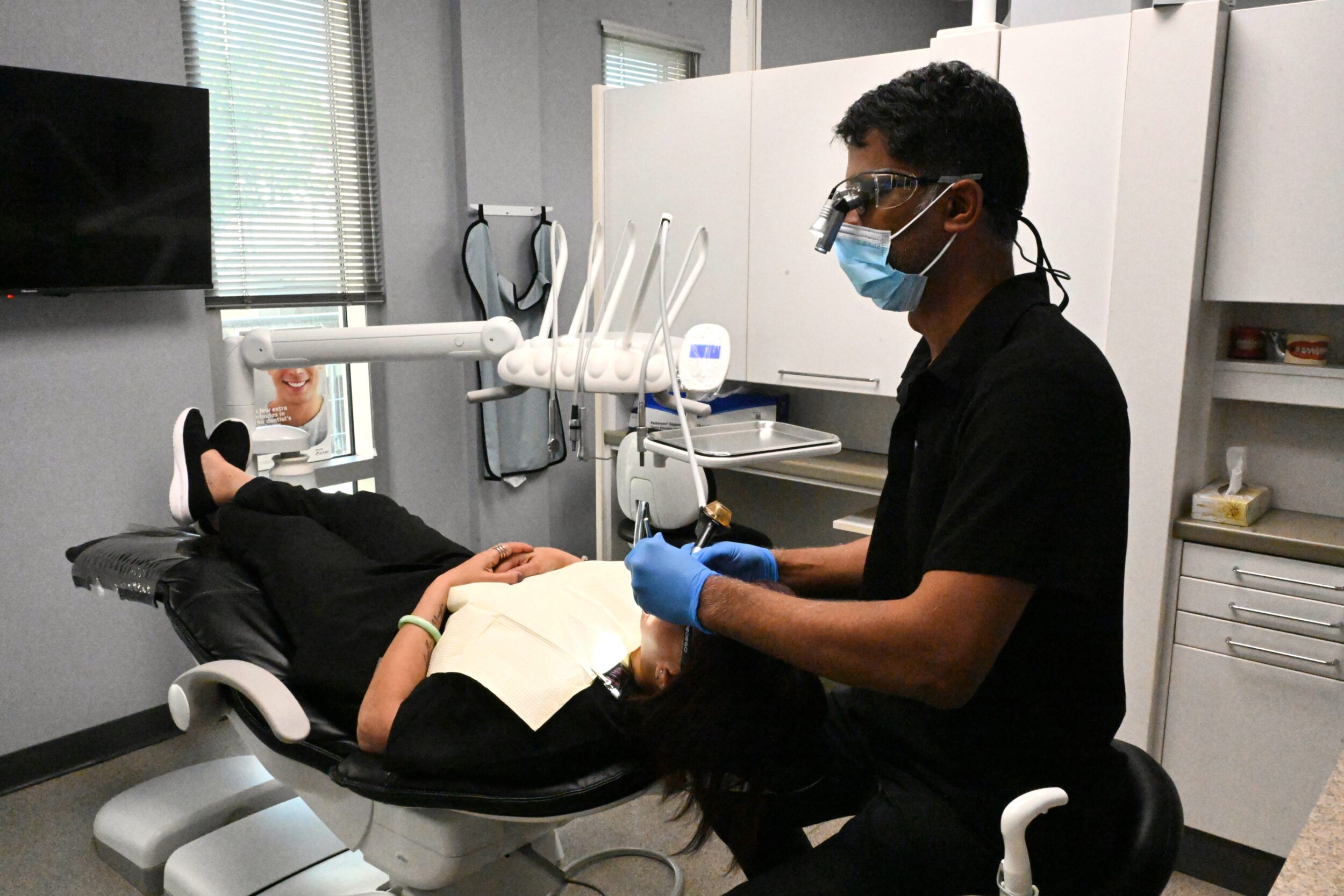Dental Anxiety and Fear
A common cause of anxiety is the overwhelming fear of dental appointments. People often imagine a drill-wielding man in a white coat waiting to cause pain and remove teeth. However, the reality is quite different. Every good dental practice places a high priority on the comfort, relaxation, and happiness of its patients. During treatment, the staff at the practice will do everything they can to reduce anxiety, allay fears and make the process as painless as possible.
In many cases, dentists can replace noisy drills with painless laser beams thanks to technological advancements. Additionally, a wide variety of safe anesthetics are available during routine appointments to alleviate pain and reduce anxiety.

The following are some of the most common dental fears:
- The fear of embarrassment associated with the condition of the teeth.
- Anxiety about gagging.
- Anxiety about injections.
- The fear of losing control.
- A fear that Novocain injections will not cause numbness.
- Pain phobia.
- An individual’s fear of the dentist.
- Fear of the hand piece (or the drill).
Is there a way to overcome dental anxiety?
It is possible to become completely overwhelmed by dental anxiety and fear. The fear of dental visits is estimated to prevent 35 million people from visiting the dentist. The importance of receiving regular dental checkups and cleanings cannot be overstated. Regular routine dental examinations are the easiest way to maintain excellent oral hygiene and reduce the need for more complex procedures in the future.
To help reduce dental anxiety and fear, here are some tips:
Consult a dentist
Dentists cannot read minds. It can be difficult to discuss irrational fears with a stranger, but if fears and anxieties are mentioned, the dentist can take extra precautions during visits.
Agree on a signal
Most people are concerned that the dentist will not recognize that they are in significant pain during the appointment and will continue the procedure regardless. You can solve this problem by agreeing with your dentist to use a “stop” hand signal. Signals such as raising the hand or tapping the chair are easily understood by both parties.
Spray the throat
Sprays for the throat (such as Vicks® Chloraseptic® Throat Spray) can actually control the gag reflex. It usually takes two or three sprays to bring the reflex under control for about an hour.
Take a portable music player with you
Relaxing music also drowns out any fear-producing noise. Anxiety can be reduced by listening to calming music during the appointment.
Take a mirror
When one is unable to see what is happening, anxiety can increase and the imagination can run wild. It is possible to maintain a sense of reality by watching the procedure.
Sedation
Many people find sedation to be an excellent option if they have no other option. While there are several types of sedation, the general premise behind them is the same: the patient regains their faculties after treatment has been completed.
Ask about alternatives
As a result of technological advancements, dental microsurgery has become a viable option. Lasers can be used to prepare teeth for fillings, whiten teeth, and remove stains from teeth. Make sure that you discuss all the options with the dentist and determine which one is most effective and produces the least amount of anxiety.
The dentist can assist you in overcoming anxiety or fear if you have questions or concerns.